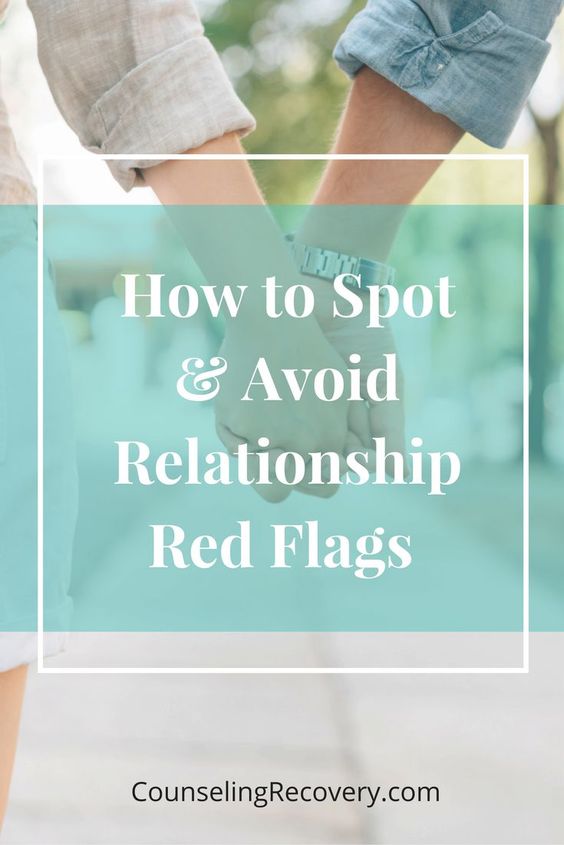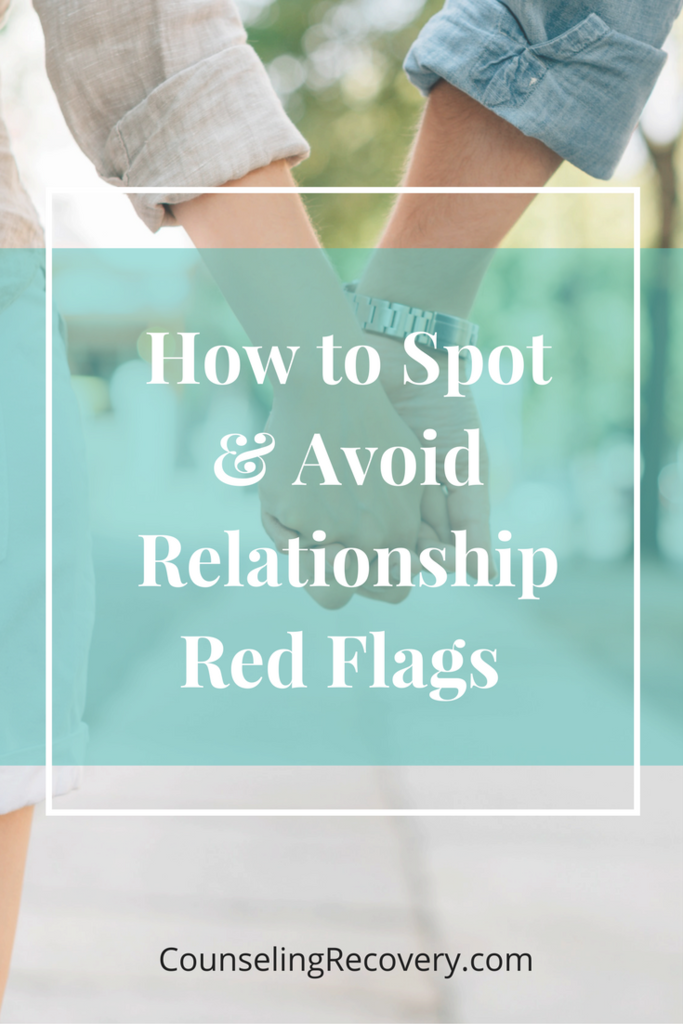Identifying and Understanding Relationship Red Flags
Most of us assume that picking the right person should come naturally, but it doesn't. If a person "feels right" you assume compatibility rather than taking the time to find out. The intense rush of infatuation makes you think that this is the one. Instead, this blog shows how to be a better "picker" so you don't fall into a disappointing or potentially dangerous relationship.
The Honeymoon
Think about what initially draws you to a person. Is it appearance, chemistry, humor, kindness, wit, similar values? Do tend to you pick the same type of person again and again? If so, is that working for you?
When starting a new relationship, sometimes you feel an instant connection. This is called the honeymoon period when everything clicks and you feel totally in sync.
Unfortunately, that intensity can make you get involved too quickly instead of seeing it as a temporary phase. Many people marry during the honeymoon phase which means that potential warning signs gets missed.
Red Flags
Identifying red flags in relationships
These warning signs or "red flags" get ignored in hopes that things will work out. These signs take time to surface. Wait until you have a few disagreements before you make any major decisions.
How the person handles disagreements will tell you a lot about their personality. Can they voice their concerns or do they avoid it? Can they hear what you have to say or do they get instantly defensive?
Next time you begin dating or starting a friendship - consider these areas before getting emotionally attached.
Things to Consider
Are they kind and considerate towards you and others?
Is their conversation generally negative or positive?
Can they talk openly about their life?
Are their subjects that are "off limits"?
Do they blame their ex-partner for the breakup?
Do they want to get involved too quickly?
Do they use substances as a way to cope or relieve stress?
Do have good relationships with family and friends?
Do they show any signs of depression or mental health issues (and unwilling to seek help)?
Are they trying to control you in any way?
If something doesn't feel right it usually isn't. Always, always follow your gut by asking clarifying questions. Get information from the person's friends and family. Often, they'll give valuable information. Be careful not to disregard the feedback thinking that you know better.
Relationships are like interviewing. Take the time to decide whether or not they are right for you. If you think there is something off, check it out. You may be right.
Watching for red flags helps you make an informed decision. It's your job to pay attention to the clues. For instance, are their values different than yours? Are there major differences in how you live? Do you get a bad feeling about something they've said but dismissed it?
Learn from the Past
Think back to the last relationship you had. What were the early warning signs? If you stayed because you didn't want to hurt someone's feelings, how did that end up? When people pleasing dictates your choices, you usually pay a price.
If you can't leave a relationship because...
you don't know how to end one.
you're afraid of their reaction.
you think you won't find anyone else.
you assume it'll work itself out.
assuming they will change once things settle down.
You will end up in relationships that aren't good for you. Sometimes, this leads to abuse and an inability to leave.
Years ago I went to a workshop by John Bradshaw, author of the famous PBS series on The Family. He said that if you can't leave a relationship you'll never be able to consciously choose one. Powerful statement!
Signs of Codependency
Part of codependency is having difficulty telling your truth and ending relationships that aren't working. These issues impact the quality of your relationships. Here are some common pitfalls that affect being a "good picker."
People pleasing
Low self esteem
Becoming emotionally dependent
An inability to say no
A desire to rescue or help others
An inability to ask for what you want
Knowing how to pick will improve the quality of your relationships. For more information about this read my blog about codependency. If you can't make changes on your own, consider getting additional help.
As you learn how to watch for red flags, your choices will be healthier in the long run. Taking the time to see if it's a good match before committing can save you heartache down the road.
Join me for free weekly tips plus access to free downloads. Click the image to get access!



